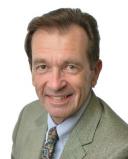Coronavirus Disease 2019
3 Critical Lessons Learned (So Far) from COVID-19
The current global pandemic teaches us much about human behavior.
Posted May 1, 2020
The current global COVID-19 pandemic has stopped the world in its tracks. Except for health care facilities, the hustle and bustle of daily life has come to a screeching halt. As we shelter in place and adapt to our quarantine and social distancing reality, many of us have some unexpected time to reflect on what has happened to us all. At this moment in the crisis, three critical psychological and behavioral science lessons learned are in the forefront of my mind and perhaps on the minds of many others too.
The first lesson is that the people most critically important to us are not the famous celebrities, elite sports stars, high tech titans, and venture capitalists who generally get all of the advantages, attention, and resources in life, and who are all paid quite handsomely. Rather the important people are the health care workers, those who work in grocery stores, the delivery drivers who transport much-needed food, medical, and other supplies, the farmers, and all those who work in food production and distribution. While many of us can work from home as long as we have a reliable internet connection, the truly essential and valuable workers and heroes cannot work from home but must put themselves at risk to provide the essential supplies that we have too often taken for granted. We need more of them and must surely treat them with the respect, honor, and pay that they deserve. We really do not need more of the truly non-essential workers who tend to grab the power, money, and prestige yet offer little in a pandemic crisis.
The second critical insight is that a crisis like a global pandemic brings out both the very best and the very worst in people and thus is an excellent test of character. Some people rise to the occasion and both graciously and selflessly give of themselves to help others. They tap into the “better angels of their nature” and do what they can for both others and for the common good. They are team players. They also are heroes. Yet, there are many who have tapped into the darker angels of their nature trying to use this crisis for personal gain. They have hoarded much-needed supplies or acted in judgmental ways towards others. Remarkably, some have even tried to swindle and profit off the global crisis and use the fears of others to their advantage for financial advantage. They have allowed the darker parts of themselves to be unleashed.
Finally, although the global pandemic is horrifying on so many levels and especially for those who get severely ill and their loved ones, there have been some positive unintended consequences from the pandemic. We should acknowledge them and learn from them. For example, air quality across the globe has greatly improved. Wildlife is making a comeback in many areas. People are learning to appreciate their loved ones and make deeper connections with them and others. Musicians have created beautiful and creative virtual choirs and ensembles that have delighted and inspired millions. Many have learned new skills needed to conduct virtual classes, meetings, and social gatherings online. Many have bonded around the notion that we are all in this together and need to embrace and protect each other, even strangers, in solidarity. I hope that we can sustain some of these positive trends when the pandemic is over.
As former White House Chief of Staff, Rahm Emanuel, famously said after the 2008 economic recession, “you never want a serious crisis to go to waste.” Perhaps we all can reflect on how the COVID-19 pandemic of today can help us learn critically important psychological and behavioral science lessons for a more humane, compassionate, and sustainable world of solidarity and kinship for tomorrow that taps into the better angels of our nature rather than the darker ones.
So, what do you think?
Copyright 2020, Thomas G. Plante, Ph.D., ABPP


